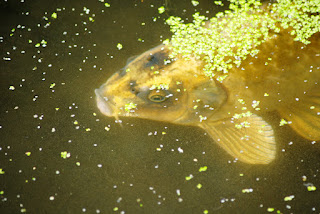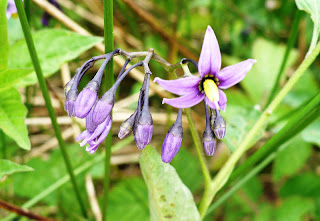This blog may help people explore some of the 'hidden' issues involved in certain media treatments of environmental and scientific issues. Using personal digital images, it's also intended to emphasise seasonal (and other) changes in natural history of the Swansea (South Wales) area. The material should help participants in field-based modules and people generally interested in the natural world. The views are wholly those of the author.
Friday, 8 June 2012
Wednesday, 6 June 2012
Tuesday, 5 June 2012
Flying Fish?
Nicolas Leschke of Efficient City Farming in Germany is going to trial the setting up of aquaponic fish and vegetable farms on the roofs of buildings in Berlin (http://www.guardian.co.uk/environment/2012/jun/04/rooftop-fish-farms-german-population?INTCMP=SRCH). The idea is to reduce the distance that edible fish are transported as well as minimising the impact of fish farming on the environment by culturing Perch in roof-top tanks. The ammonia that the fish excrete will then be used to help grow tomatos etc. The only real question I have is, where will the food for the fish be generated (and from where will it be transported)? It is an interesting idea but the installations are unlikely to be odour free.
Sunday, 3 June 2012
Costs of the Waters of Transformation?
It has been suggested that it might cost up to £30bn to put into place and operate activated charcoal filters at the 1,400 sewage treatment plants in England and Wales to remove Ethinyl oestradiol (a synthetic oestrogen contained in most contraceptive pills) to acceptable levels of 0.035 parts per trillion (http://www.guardian.co.uk/environment/2012/jun/02/water-system-toxic-contraceptive-pill). It has been repeatedly shown in studies that very low concentrations of 'environmental oestrogens' disrupt reproduction in many freshwater fishes in rivers and lakes. The hormones dramatically reduce sperm production in males and may even produce sex change. Unremarkably, the Pharmaceutical Industries are not keen to share the costs. It is, of course, not impossible that ingestion of these chemicals could also have effects on human health and it could be argued that the costs of doing nothing might, in the long term, be much greater.
Saturday, 2 June 2012
Friday, 1 June 2012
Seeing the Changes 496
Bittersweet (Solanum dulcamara) and Slender thistle (Carduus tenuiflorus) were both in bloom in Penclacwydd. There, an Ox-eye daisy (Leucanthemum vulgare) was producing rays in a strange place. The weather had also brought out the Yellow dungfly (Scatophaga stercoraria) along with a small hoverfly (Meliscaeva cinctella) and a Robberfly.
Subscribe to:
Posts (Atom)
Seeing the Changes 2183
Early ripening fruit may seem convenient but some folk think it confirms environmental stress. There's also a possibility th...

-
Early ripening fruit may seem convenient but some folk think it confirms environmental stress. There's also a possibility th...
-
It's necessary, where possible, to replace diesel and petrol-fueled vehicles by electrical equivalents. Electric vehicles (EVs) don...




+North+Gower.jpg)











%20mating%20NWCW.jpg)